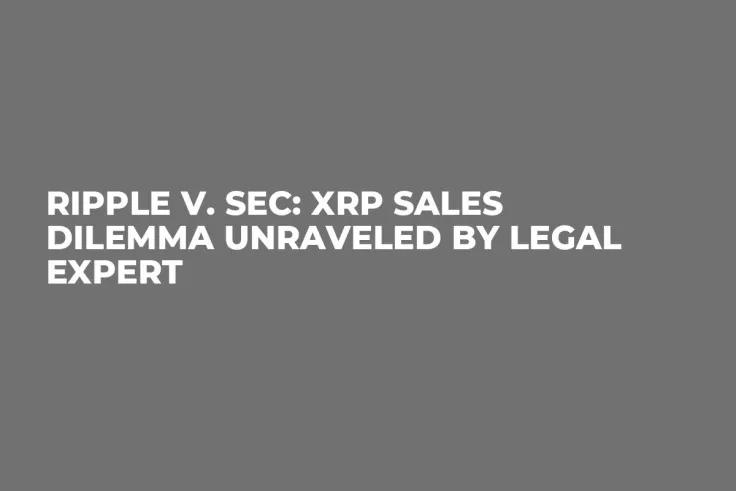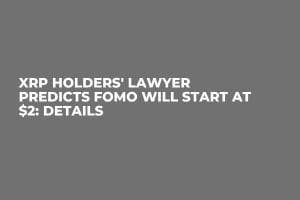Renowned legal expert Jeremy Hogan discussed secondary market sales of XRP in Ripple's battle with the SEC on Twitter. Hogan believes that resolving this issue is crucial for XRP's relisting on exchanges and determining its security classification.
Although the language used by the SEC in its lawsuit implies that XRP itself is a security akin to a share of stock, the court documents do not explicitly request this classification for the asset, leading the attorney to dismiss such a notion as absurd.
The challenge lies in the fact that the presiding judge may not address the issue, as it has not been explicitly raised by the plaintiff. While one could argue that the omission indirectly addresses it, the impact on exchanges remains uncertain. However, Hogan believes there is reason for hope.
What are the options?
One potential solution is for Ripple to secure an agreement with the SEC to exclude the issue from the final judgment, or the judge could approve language proposed by Ripple to that effect, similar to what was allowed in the KIK Interactive case.
Alternatively, the judge might consider concerns raised by various parties, including XRP holders represented by attorney Deaton, regarding secondary sales. The LBRY case provides some precedent for addressing this issue.
If Ripple loses the case, the judge might address secondary sales during the "penalties" stage, when drafting a disgorgement order. Ripple could argue that only direct purchasers should receive their investment back, citing the SEC v. Wang case.
Hogan believes the court would likely agree, as failing to do so would result in minimal compensation for individual purchasers, effectively settling the matter of secondary sales.




 Dan Burgin
Dan Burgin Vladislav Sopov
Vladislav Sopov